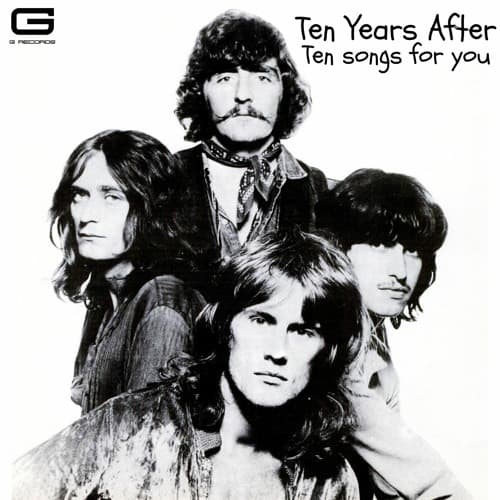
A haunting lament for peace and understanding, a timeless plea amidst a world in turmoil.
There are rock songs that demand attention with a powerful riff, and then there are those that draw you in with a quiet urgency, their message resonating with an intellectual and emotional depth that transcends their era. Ten Years After’s “I’d Love to Change the World,” released in 1971, is undeniably one of the latter. It’s a poignant, thought-provoking commentary on societal ills, environmental concerns, and the disillusionment of a generation, delivered with a sophisticated blend of blues-rock grit and acoustic introspection. For anyone who remembers the idealism and anxieties of the early 1970s, or who simply yearns for a more harmonious world, this song remains a powerful and incredibly relevant anthem, its gentle melody belying its profound message.
“I’d Love to Change the World” is a standout track from Ten Years After’s sixth studio album, ‘A Space in Time’, which was released in August 1971. By this point, the British blues-rock quartet, led by the virtuosic guitarist and vocalist Alvin Lee, had already cemented their reputation with their electrifying performance at Woodstock and a string of successful albums. “I’d Love to Change the World” was released as a single from ‘A Space in Time’ in late 1971. It became their most commercially successful single in the United States, peaking at an impressive No. 40 on the U.S. Billboard Hot 100 chart in 1971. While it did not chart in the UK, its significant airplay on progressive rock and FM radio stations ensured its widespread recognition and enduring popularity across North America. The album ‘A Space in Time’ itself was also a major commercial success, reaching No. 17 on the U.S. Billboard 200 and achieving Platinum status, solidifying Ten Years After’s mainstream appeal. The song’s unique blend of acoustic sensitivity and electric power made it a standout, showcasing the band’s versatility beyond their more traditional blues-rock fare.
The story behind “I’d Love to Change the World” is rooted in the songwriting talents of Alvin Lee. The lyrics are a direct, yet poetic, reflection on the tumultuous social and political climate of the late 1960s and early 1970s. It touches upon themes of war (“tax the rich to feed the poor, till there are no rich no more”), environmental degradation (“the way she’s going, it won’t be long, ’til she’s dead and gone”), and the pervasive sense of helplessness in the face of widespread injustice. The opening lines, “Everywhere is freaks and hairies / Dyin’ trees and hungry babies,” immediately set a stark, observational tone. Lee’s vocal delivery is earnest and heartfelt, imbued with a weariness that perfectly captures the disillusionment of a generation. Musically, the song is particularly notable for its contrasting dynamics: it begins with a haunting, almost fragile acoustic guitar melody, accompanied by a subtle flute-like synth, before building into a more powerful, electric rock section with Lee’s signature blazing guitar solo. This interplay between gentle introspection and assertive power mirrors the song’s lyrical tension between idealism and the harsh realities of the world.
For those of us who came of age amidst the Vietnam War, the burgeoning environmental movement, and the enduring quest for peace and understanding, Ten Years After’s “I’d Love to Change the World” is more than just a song; it’s a deeply emotional echo of a hopeful, yet often frustrated, generation. It brings forth memories of earnest discussions, of questioning authority, and of the profound yearning for a better future. The song’s contemplative verses and its explosive, yet restrained, guitar solo conjure feelings of both despair and resilient hope. It reminds us that even when the path to change seems daunting, the desire for a more just and harmonious world persists. “I’d Love to Change the World” stands as a timeless plea, its gentle melody and powerful message continuing to resonate with renewed urgency in every era touched by turmoil, inviting us all to reflect on our place in the global tapestry and our enduring responsibility to strive for a better tomorrow.